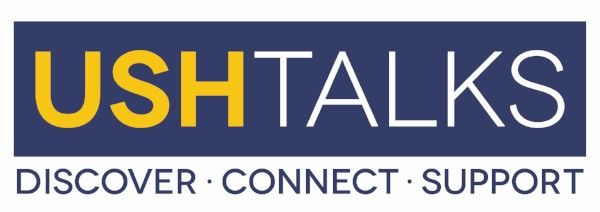USH2020: Usher Syndrome Type 1C Research Update
July 6, 2020
Jennifer J. Lentz, PhD
Associate Professor of Otolaryngology & Biocommunications, Ophthalmology, Genetics
Louisiana State University Health New Orleans
Watch this presentation in ASL:
Download the transcript
Download the presentation slides
Presentation Summary:
Approximately 2.5% of Usher syndrome (Usher, USH) is caused by mutations in the USH1C gene, which encodes the protein harmonin. The USH1C c.216G>A (216A) mutation accounts for nearly all Type 1 cases of Usher in Acadian populations of Louisiana, USA and Canada. Aberrant splicing at the 216A position causes the deletion of 35 base pairs from the mRNA and a frame shift in the transcript, which produces a truncated harmonin protein. We created a unique mouse model of USH1C by knocking-in the human 216A mutation. The USH1C mice show hearing, balance, and visual dysfunction similar to patients. We use this USH1C mouse model to develop therapies aimed at preventing or curing the disease. Recently, we developed antisense and gene therapies that restore hearing, balance, and vision in the USH1C mice. Currently, we are optimizing these therapeutic strategies for the treatment of visual loss and imbalance in USH1C patients.
Additionally, our research aims to improve our understanding of the molecular epidemiology and natural medical history of USH1C throughout the world. We conduct several USH1C natural history studies (NHS) including a retrospective analysis of medical data, and prospective analyses of the natural history of visual loss and imbalance. Currently, a total of 103 study participants, ranging in age from 18 months – 93 years have been enrolled from our clinics at LSUHSC, clinical colleagues throughout the US, Canada, and Europe, and contacts at patient advocacy groups (Usher 2020, Ush One See, and Usher Syndrome Coalition Foundations). Molecular diagnosis of Usher syndrome is confirmed by genetic testing performed either by the referring physician or confirmed by us through a collaboration with a clinical laboratory (Dr. Edwin Stone, Usher Project, University of Iowa). The long-term goals of our studies are to develop new therapies for USH1C, and identify patients and clinical tests that could be used to guide a future clinical trial.
Speaker Bio:
Jennifer J. Lentz, PhD., is an Associate Professor of Otolaryngology & Biocommunications, Ophthalmology, Genetics, and a member of the Neuroscience Center of Excellence at Louisiana State University Health in New Orleans, Louisiana, USA. The overall goals of her research are to understand the mechanisms of Usher syndrome, and to develop therapeutic approaches to prevent or cure the deafness, imbalance, and blindness associated with the disease. The focus of her laboratory is type 1C Usher syndrome (USH1C), which affects the Acadian populations of south Louisiana and Canada. Approximately 2.5% of Usher is caused by mutations in the USH1C gene, which encodes the protein harmonin. The USH1C c.216G>A (216A) mutation accounts for nearly all cases of Usher 1 in Acadian populations. Aberrant splicing at the 216A position causes the deletion of 35 base pairs from the mRNA and a frame shift in the transcript, which produces a truncated harmonin protein. Her laboratory created a unique mouse model of USH1C by knocking-in the human 216A mutation responsible for the combined deafness, vestibular dysfunction, blindness in USH1C patients. The USH1C mice show hearing, balance, and visual dysfunction similar to patients. Her laboratory uses this Usher mouse model to understand the underlying mechanisms that lead to the multi-sensory loss associated with Usher syndrome, and to develop therapies aimed at preventing or curing the disease. Recently, her laboratory developed antisense and gene therapies that restore hearing, balance, and vision in the USH1C mice. Dr. Lentz’s laboratory is currently continuing to develop these therapeutic strategies for the treatment of visual loss in USH1C patients. Additionally, Dr. Lentz’s research aims to improve our understanding of the molecular epidemiology and natural medical history of Usher syndrome in Louisiana through a retrospective analysis of medical data. Currently, a total of 103 study participants, ranging in age from 18 months – 93 years have been enrolled from our clinics at LSUHSC, or through contacts with local physicians in Louisiana, clinical colleagues throughout the US, Canada, France, and Germany, and patient advocacy groups (Usher 2020, Ush One See, and Usher Syndrome Coalition Foundations). Molecular diagnosis of Usher syndrome is confirmed by genetic testing performed either by the referring physician or confirmed by us through a collaboration with a clinical laboratory (Dr. Edwin Stone, Usher Project, University of Iowa). Dr. Lentz also hosts a community symposium every other year that brings together clinicians, researchers, patients and community members affected by Usher to improve clinical and community knowledge and awareness of Usher syndrome. The first symposium was held in Baton Rouge in 2014, which drew approximately 50 attendees. We worked with the University of Louisiana in Lafayette to hold the next 2 symposiums in Lafayette in 2016 and 2018, which had approximately 100 and 150 attendees, respectively.









